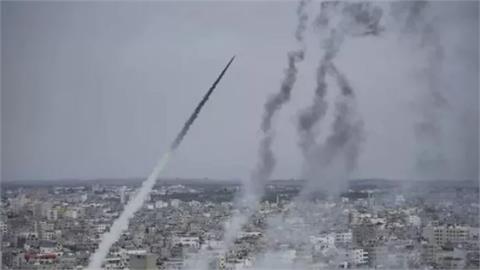The events of the past week far from unprecedented are indicative of a change of phase in the long running conflict between Israel and Iran. Until now Iran’s aggression towards Israel and the ensuing military operations was channelled through a variety of proxies such as Hizballah in Lebanon, Hamas in Palestine, the Houthis in North Yemen and a string of militias in Iraq. Between them these actors formed the so called axis of resistance against Israel, and over the past decades were responsible for thousands of deaths of Israeli military and civilians, including Hamas’s audacious and bloody attack of October 7,2023.
The events of the past week far from unprecedented are indicative of a change of phase in the long running conflict between Israel and Iran. Until now Iran’s aggression towards Israel and the ensuing military operations was channelled through a variety of proxies such as Hizballah in Lebanon, Hamas in Palestine, the Houthis in North Yemen and a string of militias in Iraq. Between them these actors formed the so called axis of resistance against Israel, and over the past decades were responsible for thousands of deaths of Israeli military and civilians, including Hamas’s audacious and bloody attack of October 7,2023.
Since then, Israel has sharpened its defence and attack capabilities as the Netanyahu government has seen this occurrence as an opportunity to clear the ground once and for all from its assorted enemies. As the hostilities between the axis of resistance actors and Israel escalated over the last few months, their sponsor, Iran, was inevitably drawn into the conflict culminating in the April 13th direct attack against Israel, as retaliation for the killing of an Iranian general when Israel bombed Iran’s compound in Damascus. Tehran’s attack, conducted with hundreds of missiles and drones, was a flop as the entire barrage was intercepted and destroyed. At the time Israel’s retaliation was extremely mild and consisted of an air attack (19/4) on a single Iranian air-defence radar installation near Isfahan.
A better prepared and more targeted attack by Iran against Israeli military facilities took place last Tuesday (1/10). The intention seems to have been to overwhelm Israel’s missile-defence systems by force of numbers. If so, it failed almost completely. Most of the missiles were intercepted and destroyed in mid-air. Israel is now mulling another retaliatory action against Iran. There is little doubt that this time Tel Aviv’s response will be harsher and of a far greater magnitude. It may involve a direct attack against Iran’s nuclear facilities, a long thought action favoured by Isreal’s far right political wing, or most likely a missile and air bombardment onslaught focusing on Iran’s oil production and refinery installations.
In this case the objective will be to dismantle an as large portion as possible of Iran’s extensive oil and gas infrastructure. The intention here will simply be to cripple Iran’s production and export capability and thus manage a decisive blow against Iran’s fragile economy. This will inevitably lead to wide social dissent and may prepare the ground for regime change, a long-sought objective by Israel and the Western alliance. Preventing Iran to produce and export oil will not just lead to an expected sharp rise of oil prices but will most likely lead to a wider conflict as Tehran will spare no effort to harass maritime traffic in the Gulf and attempt to control the Hormuz straits through which some 25% of global oil moves daily.
What will happen next is anyone’s guess. What is for sure is that a direct engagement between the two big adversaries in the Middle East will not end easily and without huge losses for both sides. The anticipated impact from such a huge escalation of hostilities in this part of the world will have far reaching economic and geopolitical consequences and could well lead to a major global energy crisis.
(from IENE’s Energy Weekly Report, October 4, 2024)




